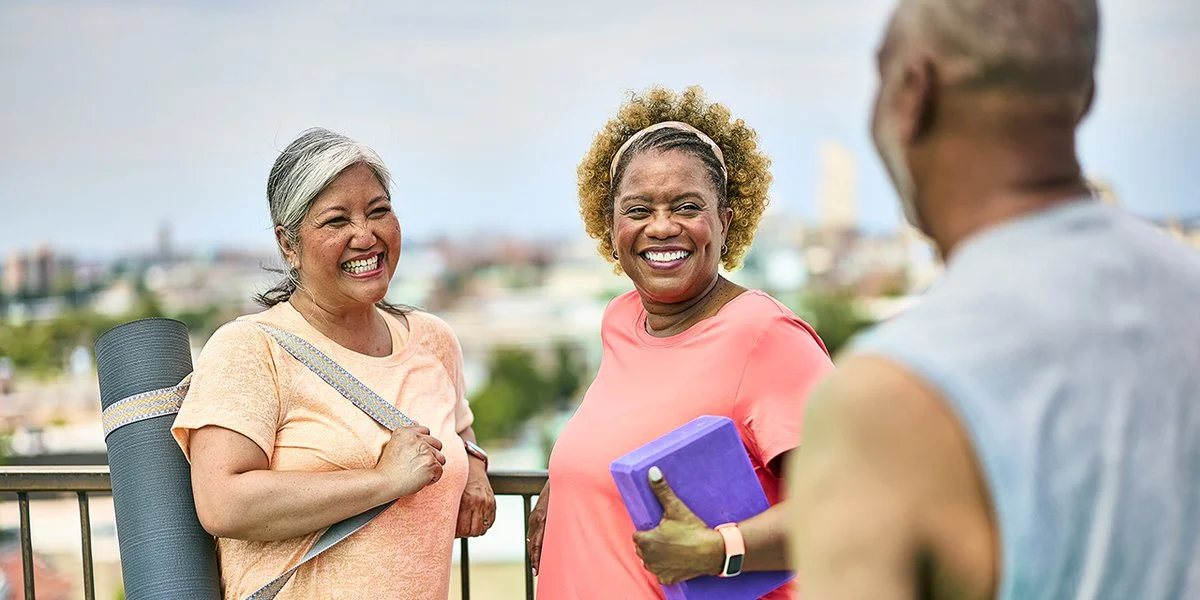
How Loneliness Affects Your Health and Ways to Stay Connected
Don’t let loneliness harm your health. Learn simple ways to stay connected.
Feeling a bit lonely, even when surrounded by people, is something many of us experience. Maybe your days feel quieter than they used to be, or you miss the regular chats you once had with friends and loved ones. You’re definitely not alone in feeling this way.
Considering that 1 in 3 adults in the U.S. report feeling lonely and 1 in 4 lack having social and emotional support, it’s easy to see why it’s important to take steps to stay connected.*
Because loneliness isn’t just about being alone; it’s about feeling disconnected from others.
How Loneliness Affects Your Health
Many older adults experience loneliness due to changes in their social circles, retirement, or the loss of loved ones. Loneliness can affect both your mental and physical health. In fact, loneliness poses health risks in the United States, as deadly as smoking up to 15 cigarettes a day, according to the U.S. Surgeon General 2023 report.†
Studies show that social isolation and loneliness can increase the risk of:
- Heart Disease
- High Blood Pressure
- Weakened Immune System
- Depression
- Anxiety
- Cognitive Decline
Ways to Stay Connected
Loneliness doesn’t have to take over your life. Here are some ways to stay socially engaged and improve your health:
Join a Group – It could be a book club, an exercise class, or any club or group that gets you out. Meeting new people is a good thing.
Call Your Friends and Family – Making regular phone calls and having video chats can make a big difference in how you feel. Just talking with someone can brighten your day. When you can, put down the phone and try to visit in person.
Volunteering – Helping others can give you a sense of purpose and introduce you to new people.
Try a New Hobby – Activities like gardening, painting, or playing music can keep your mind engaged and open doors to meeting others with similar interests. For other ideas, check out our 20 Fun Hobbies for Seniors blog for other ideas.
Care for a Pet – Pets give love and companionship every day, whether it’s a dog wagging its tail or a cat curling up in a lap. They can help give you a sense of purpose and create a routine, like walking and feeding them. Plus, pet owners are 36% less likely to be lonely versus non-pet owners.**
Grief Support Groups – Many local churches, senior centers, and community organizations have support groups where people can share their feelings with others who understand.
Get Online – Social media and online communities can help you stay connected even if you can’t leave your home. You can read more in our blog about How Technology Brings Us Together.
If these activities don’t help and you’re still feeling lonely, it might be time to speak with your doctor. If loneliness is making you feel hopeless or affecting your daily life, you should seek help either with your doctor or your mental health provider. They can provide support and connect you with resources to help.
-
Looking for more lifestyle tips? Explore our latest blogs for practical tips to make healthier choices and get the most from your Medicare benefits.
Don’t forget to follow us on Facebook for updates and additional resources!
Sources:
•https://www.cdc.gov/social-connectedness/risk-factors/index.html
†https://apnews.com/article/surgeon-general-loneliness-334450f7bb5a77e88d8085b178340e19
** https://pmc.ncbi.nlm.nih.gov/articles/PMC3944143/
Y0129_25EX006Q_C


